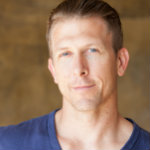 Reading Time: 3 minutes
Reading Time: 3 minutesThis Week We Experiment with Naikan Reflection
Simple Instructions:
- Each day, choose a person, relationship, situation, or event and answer the following three questions about it:
- What have I received from _______________ ?
- What have I given to _______________?
- What troubles and difficulties have I caused _______________ ?
- You can write in any format you like: long form, like a journal entry, or simply as bulleted list.
- There is no minimum number of items that must appear on each list (aside from zero).
- If you find yourself unable to come up with a single item for any of the three questions, we suggest you choose another subject for the day’s journaling and maybe come back to the one that is giving you trouble on another day. It is very unlikely you won’t be able to find at least a single answer for each question, particularly if you are to look at it both from your perspective and from the perspective of the subject on which you’re journaling.
Watch this video for an explanation of this Well-Being Practice from Whole Life Challenge co-founders Andy Petranek and Michael Stanwyck.
Why Is This Practice Important?
In spite of our efforts to prove we are capable of doing everything ourselves, it is impossible to honestly deny how the world around us serves us, simply by its existence.
From the lights, water, roads, mail, and communication services there at the flip of a switch, to the people who have chosen to provide the services we interact with, to our loved ones who rescue us from loneliness, we are served — whether we acknowledge it or not — from the time we wake up to the time we return to bed.
We are a part of a much bigger picture than we often realize. While we are the stars of our own lives, our star is part of an endless constellation of equals, giving and receiving in some measure.
Even the person you believe might be the “worst” in the galaxy is probably doing something that contributes positively to your life (that “unbearable” neighbor, perhaps, who also happens to take impeccable care of his beautiful lawn). And, with a little perspective, you might see how you could be causing this person a little trouble, too.
Being willing to honestly perform this week’s exercise of Naikan reflection can give you a more far-reaching perspective on the world around you — not only for the sake of the world, but for you, too.
Discovering where there is goodness you haven’t seen, where you’ve contributed to others without realizing it, and even where you could clean up your act, trues you up to the kind of life you dream about, full of peace, joy, and gratitude.
While it’s not easy to simply arouse feelings like this, you can open yourself to the experience with preparation (and that is why this week’s Well-Being Practice is the practice of Naikan reflection).
Just like a person who wants flowers doesn’t simply wish for flowers — they prepare the soil, plant seeds, water them, and make sure they get adequate light — you can lay the groundwork for the kind of mind that knows how to see what there is to be joyful about.
For More on This Practice
 UJ Ramdas believes the key to successful journaling is to keep the practice short. The idea being that practicing this habit each day for five minutes is better than doing it once in a while for longer sessions.
UJ Ramdas believes the key to successful journaling is to keep the practice short. The idea being that practicing this habit each day for five minutes is better than doing it once in a while for longer sessions.
Ramdas (an expert in behavioral science and journaling) shared his thoughts on the power of daily writing and much more in his discussion with WLC Co-founder Andy Petranek. Click here to listen to the podcast.








